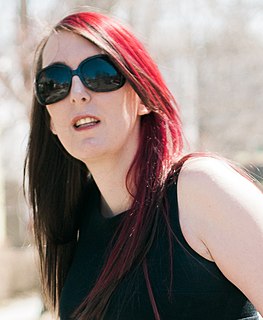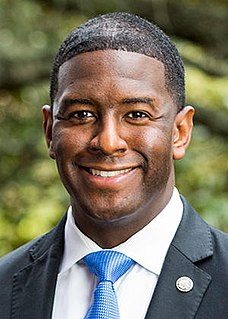A Quote by Brianna Wu
The real question is whether or not the communities that rule the Internet can make their spaces safer for users, especially women and minorities.
Related Quotes
Here's what I learned as a mayor and a governor. The way you make communities safer and the way you make police safer is through community policing. You build the bonds between the community and the police force, build bonds of understanding, and then when people feel comfortable in their communities, that gap between the police and the communities they serve narrows. And when that gap narrows, it's safer for the communities and it's safer for the police.
Every single day there are communities and people in communities who are hurting in real deep ways. The problems that they're suffering from are very nuanced, but they're granular in nature and they require real intentional planning in order to begin to lift the burden off of some of these communities that have been generationally and inter-generationally plagued by those kinds of problems. The challenge will remain. Whether we can rise to it, will the establishment rise to those challenges is a different question.
But the question is, do we care enough? Do we care enough to keep standing up for the country that we know is possible, even if it's hard, and even if it's politically uncomfortable? Do we care enough to sustain the passion and the pressure to make our communities safer and our country safer? Do we care enough to do everything we can to spare other families the pain that is felt here today?
Latino actors and actresses have had to struggle for decades, but when I came around with Real Women Have Curves, attitudes were starting to change. We screened the film all over the world - in Jewish communities, black communities, Greek communities, German communities - and people across the board said, "That's my family."
You build the bonds through the community and police force, build bonds of understanding, and then when people feel comfortable in their communities, that gap between the police and the communities they serve narrows. And when that gap narrows, it's safer for the communities and it's safer for the police.
































